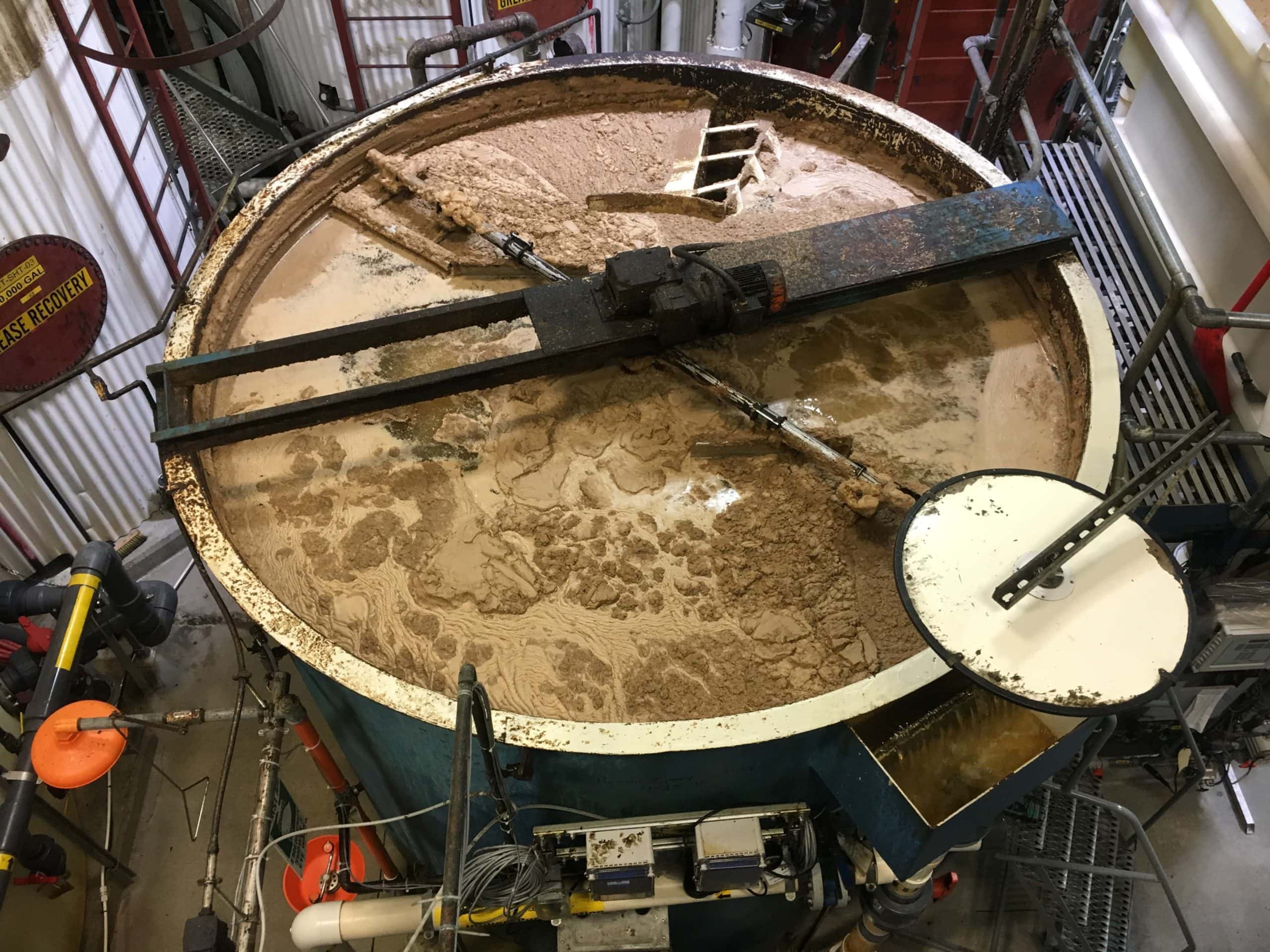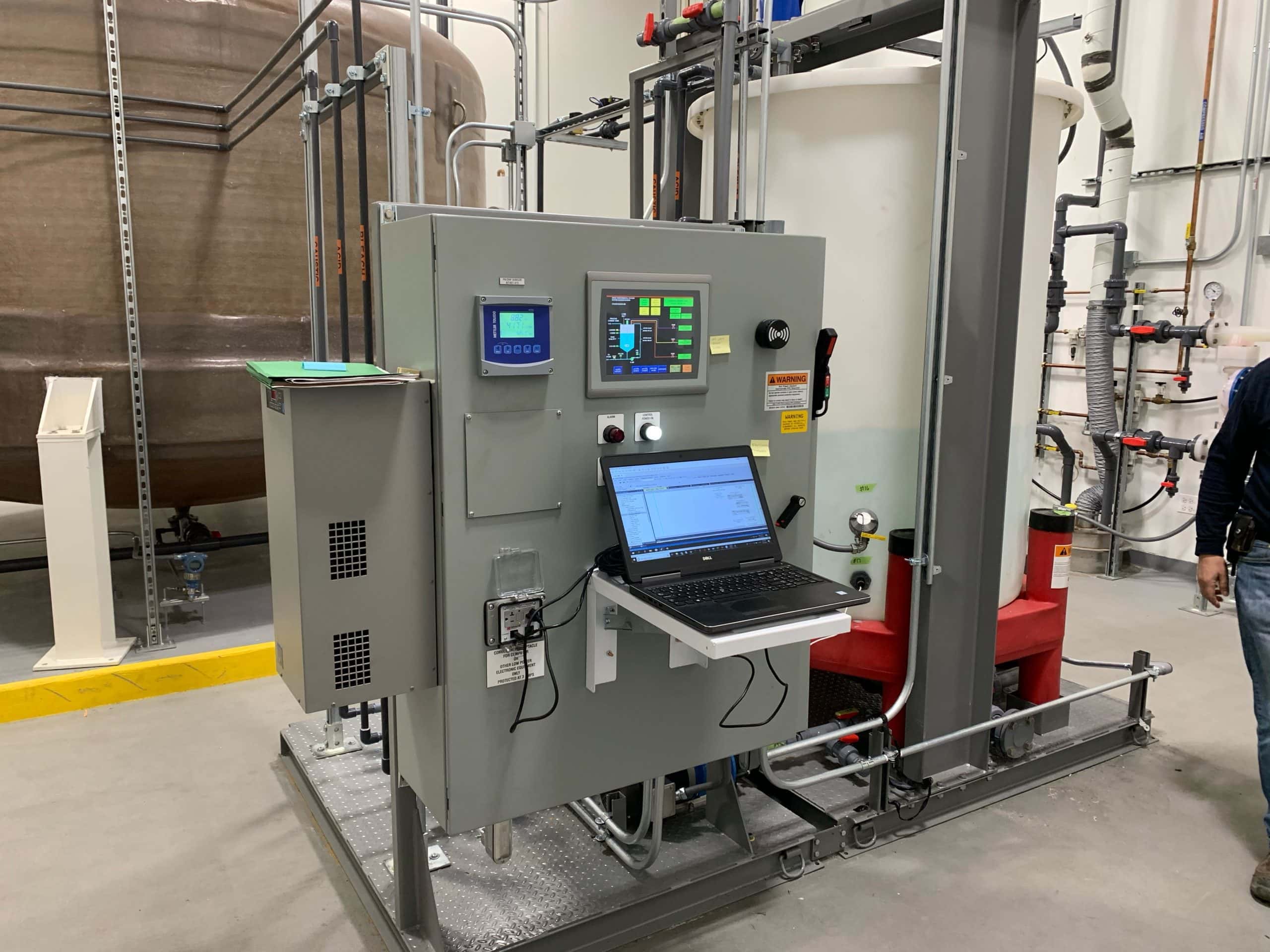
Industrial processes often generate wastewater that is challenging to handle due to its high pollutant volume, complex composition, and unpredictable variability. The complex and variable nature of effluent necessitates a thorough analysis of its physical and chemical characteristics.
This analysis is the foundation for designing the most cost-effective and efficient treatment process for your needs. As companies look to reduce operational costs, effective and automated treatment systems have driven improvements in innovation in the sector for many years. Though technological advances have emerged, challenges still remain.
These challenges are particularly acute regarding maintaining compliance with environmental regulations and discharge limits. Keeping up with changing rules, meeting stringent discharge standards, and managing complex effluents can take time and effort. Failure to comply can have significant, costly, and far-reaching consequences.
Read on to learn more about industrial wastewater treatment costs and compliance issues.
Factors Leading to Non-Compliance
The most common reason a company falls into non-compliance is a change in their industrial operations. For example, introducing new chemicals, increasing production volume, or modifying Clean in Place (CIP) processes may render their wastewater treatment system unable to handle contaminants.
Other main factors include:
Lack of Maintenance
Many businesses neglect to keep their systems in good working order. They tend to put maintenance and upkeep off and instead opt to pay surcharge—rather than addressing the root causes of the issues. This can lead to compliance violations and costly penalties.
Adapting to Regulatory Changes
Companies often have a challenging time keeping up with changing regulations. For example, the EPA may introduce stricter limits on certain pollutants, requiring them to upgrade their wastewater treatment systems. Many of them don’t have money budgeted for this unexpected expense.
Aging Equipment
Another issue is the use of older equipment. Treatment systems that reach the end of their lifespan may become less effective at removing pollutants and lead to compliance violations. This is particularly challenging for companies that have been operating for decades. Their systems may be outdated or incompatible with newer technologies.
Upgrading Issues
Upgrading or replacing older systems can be a significant financial burden, especially for smaller businesses. Companies must stay informed about regulatory changes and plan ahead to ensure they have the necessary resources to maintain compliance. Failure to adapt quickly enough can lead to non-compliance and costly penalties.
In one instance, a plating company faced a significant challenge when the municipality lowered the discharge limits by a factor of almost 100. This was due to three other platers within the same municipality.
The engineers at Anguil helped this client by sharing targeted “polishing” techniques they could add to the back of the system without disrupting current operations or incur significant costs to meet the more stringent discharge standard.
Challenges of Serving Multiple Industries and Treating Complex Effluents
Staying compliant with EPA regulations can be particularly challenging for companies that serve multiple industries. Each industry may have its standards and requirements, and what works for one may not be sufficient for another.
For example, an oil and gas company that produces water as a byproduct must ensure that its wastewater treatment system effectively removes contaminants specific to both sectors.
Some industrial effluents are extremely difficult to treat and often result from challenging industrial processes that form complex wastewater streams. These wastewaters can contain high levels of oil and grease, heavy metals, and toxic or corrosive chemicals, with each component requiring specialized treatment. This includes surface and groundwater impacted by industrial use, which must be remediated (PFAs, 1-4 dioxane are examples).
The EPA is a concern regarding surface discharge or anything near waterways and wetlands. However, local discharge standards are often more important, as they consolidate the EPA requirements.
This complexity requires a deep understanding of the regulatory landscape and the ability to design and implement flexible treatment solutions.
Balancing EPA Standards and ESG Commitments
Many companies voluntarily commit to environmental, social, and governance (ESG) goals, such as achieving net-zero emissions. While these initiatives demonstrate a commitment to sustainability, they can sometimes conflict with EPA regulations.
This is a significant reason they generally prioritize meeting discharge standards over ESG initiatives. The potential for fines, legal repercussions, and damage to their reputation is far too great.
For example, some technologies that reduce greenhouse gas emissions may be less effective at removing certain water pollutants. Companies must carefully navigate these competing priorities and find solutions that balance environmental compliance with sustainability objectives.
However, there is growing interest in water reuse, which can provide a return on investment over time and contribute to sustainability goals. Companies must consider the costs and benefits of implementing ESG initiatives while ensuring compliance with EPA regulations, as every case is different.
Anguil provides treatment systems to remove or reduce the following contaminants and address other wastewater treatment system performance issues.
- Total Suspended Solids (TSS)
- Total Dissolved Solids (TDS)
- Metals – Dissolved
- Fats, Oil, Grease (FOG)
- Biochemical Oxygen Demand (BOD)
- Chemical Oxygen Demand (COD)
- Color
- Inorganic/Organic Compounds
- pH
- Volatile Organic Compounds (VOCs)
- Solids Handling
Navigating Local Discharge Standards
While EPA regulations set the overarching framework for environmental protection, local Publicly Owned Treatment Works (POTWs) play a crucial role in enforcing discharge standards.
These standards often incorporate and expand upon EPA requirements, tailoring them to the specific needs and conditions of the local environment and infrastructure.
At Anguil, we understand the intricacies of both EPA regulations and local discharge standards.
Anguil’s Comprehensive Approach to Industrial Wastewater Treatment
Anguil’s comprehensive approach to providing industrial wastewater treatment systems starts with understanding your current water chemistry, your required discharge or reuse criteria, and then performing the necessary lab trials and testing to validate an effective treatment approach that meets your business’ goals and objectives. The onsite Anguil wet-lab offers the equipment to efficiently trial multiple treatment technologies and processes to ideally provide you with multiple options that allow you to select the approach that works best for you.
We offer a single source of responsibility by managing all aspects of industrial wastewater treatment, from system design and integration to installation services, commissioning and ongoing support.
Reducing Discharge Volume through Water Reuse
In an effort to be a good neighbor or to save money, many organizations look to reusing treated water in their processes. This approach is gaining traction in many markets.
To successfully implement water reuse, you must determine the required water quality for the intended application. This may involve treating the water to meet specific standards for use in the same industrial process or for other purposes, such as boiler feedwater. Anguil can help you explore the costs and benefits your company can achieve through water reuse.
Anguil Industrial Wastewater Treatment Solutions
Anguil’s approach is focused on aligning the correct technologies with a client’s objectives. Because we leverage all available technologies in the marketplace, we are not focused on trying to make the solution fit into one or a few typical technologies. Instead, we discuss a client’s wants and needs, design a lab trial approach to validate the viability, and then provide our client’s with the results, along with pros and cons as to how they relate to their wants and needs. This ensures our client’s can make the most informed decision.
The industrial wastewater treatment solutions we offer are developed from a collaborative process with our customer to understand their needs, then validated through lab or pilot testing. Anguil can provide additional services, including installation and service if the customer requires. In the end, Anguil is there to provide as much, or as little, as our clients need. We believe our flexible and transparent approach provides our a significant cost advantage to our customers. Whether you need clean process water, system upgrade, updated controls and automation, or a treatment system to ensure compliance with discharge or reuse, we feel our flexible approach, along with the findings from our validation testing in the lab or field, is what sets us apart.
Partner with Anguil for Effective Treatment Solutions
At Anguil, we understand the intricacies of industrial wastewater treatment and the importance of practical solutions. Over the past 40 years, we have developed a deep understanding of the regulatory landscape and the ability to design and implement flexible treatment options.
Click below to learn how we helped a global manufacturer of key chemical ingredients solve a significant wastewater treatment challenge.


